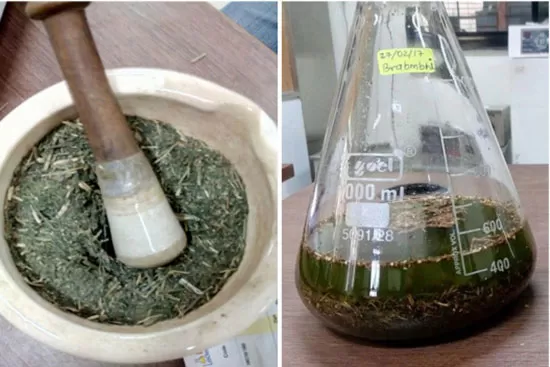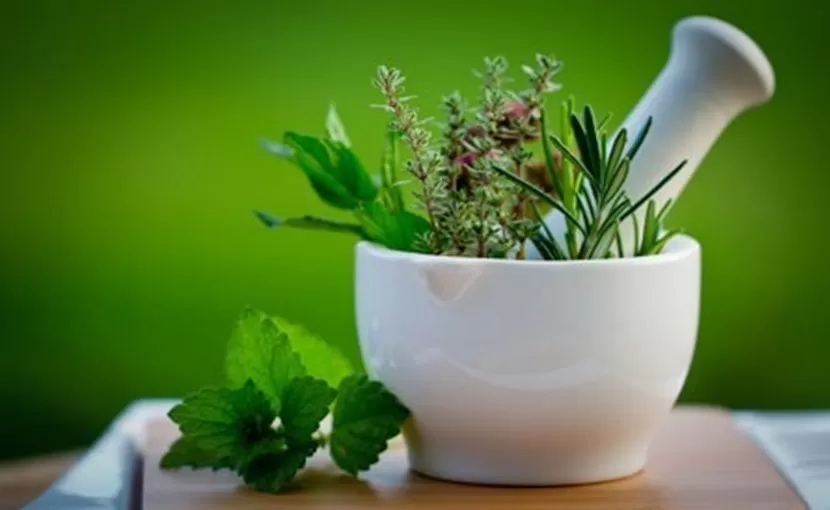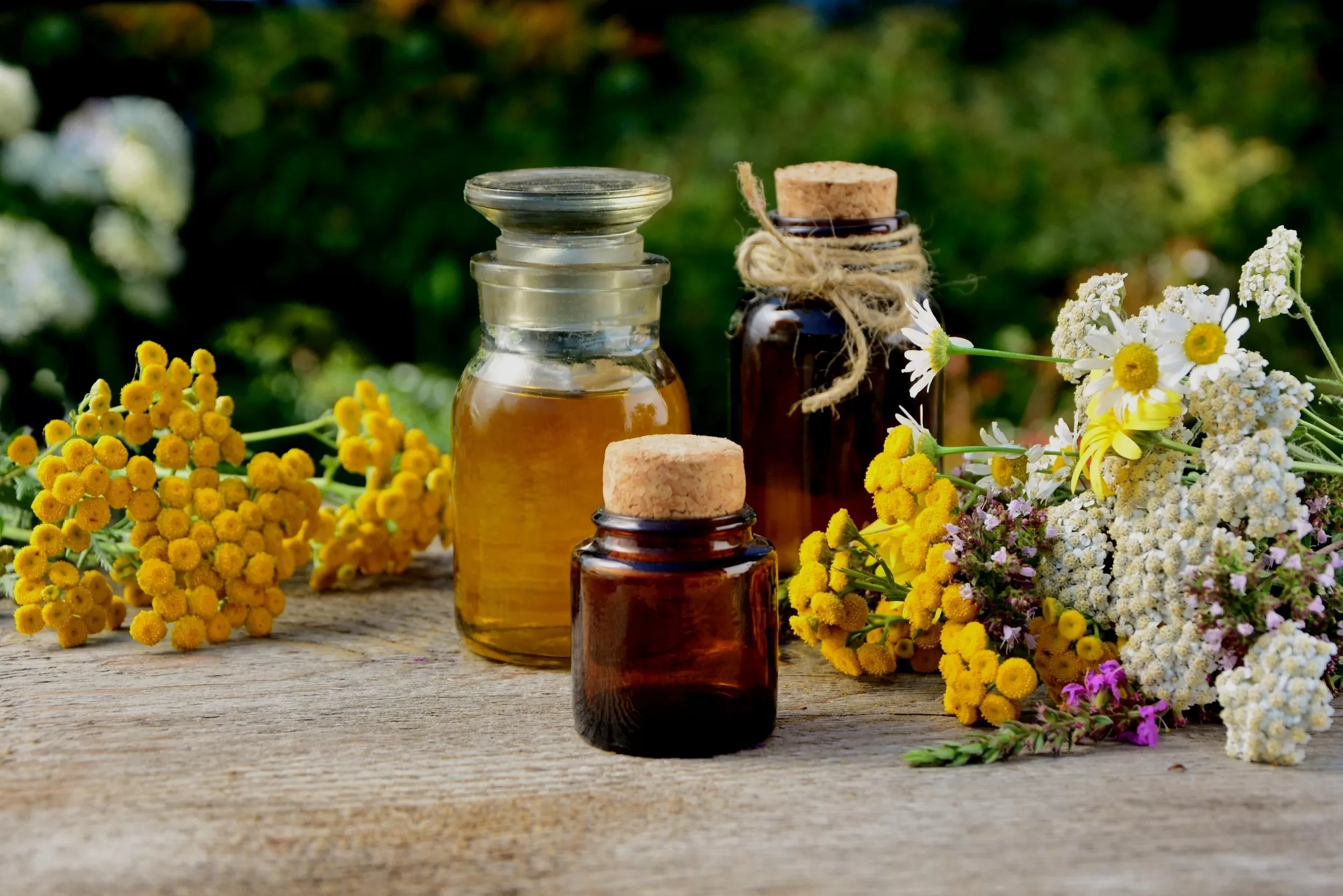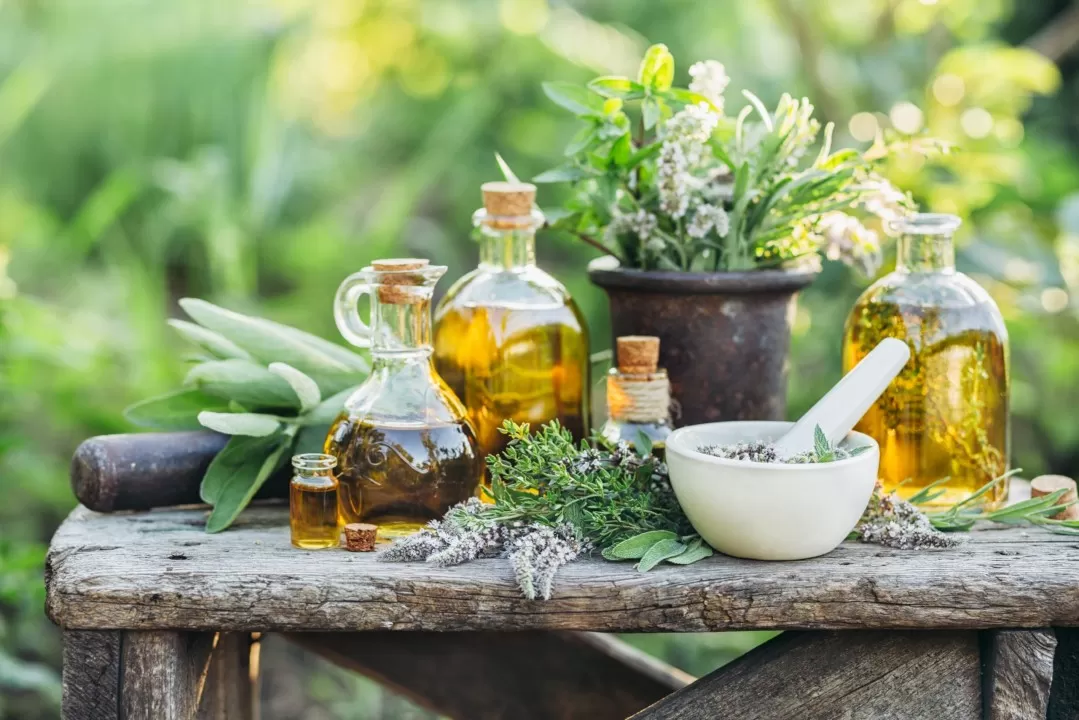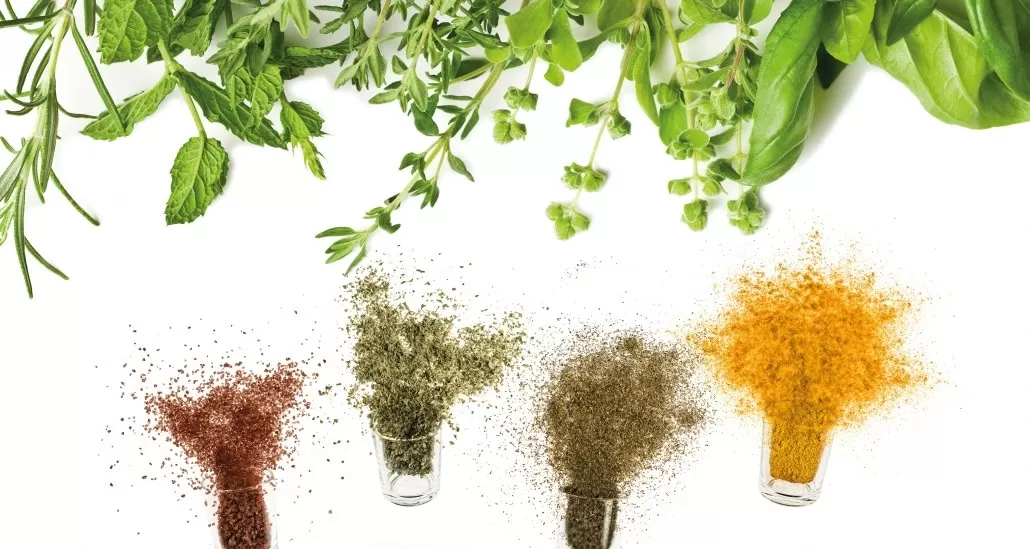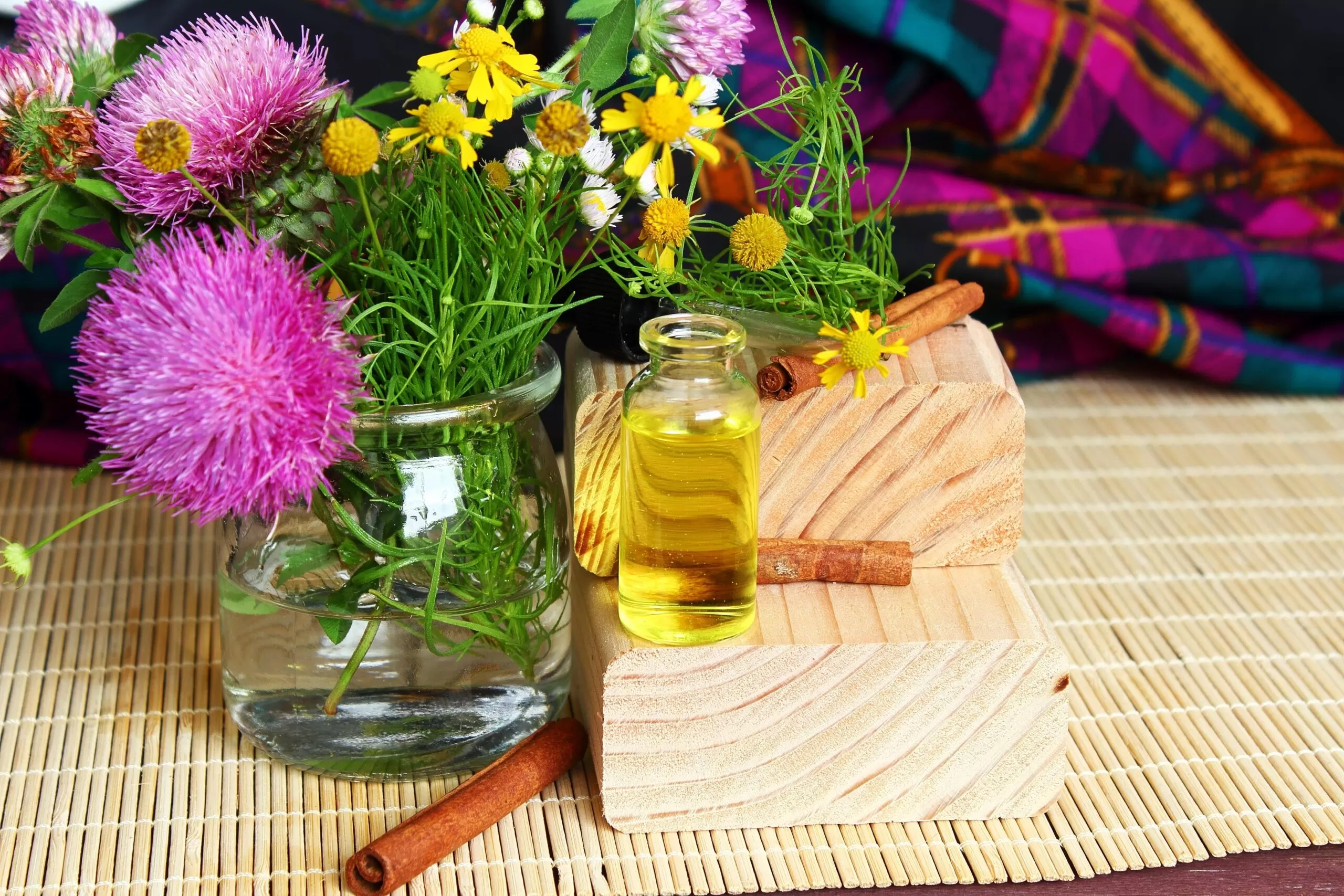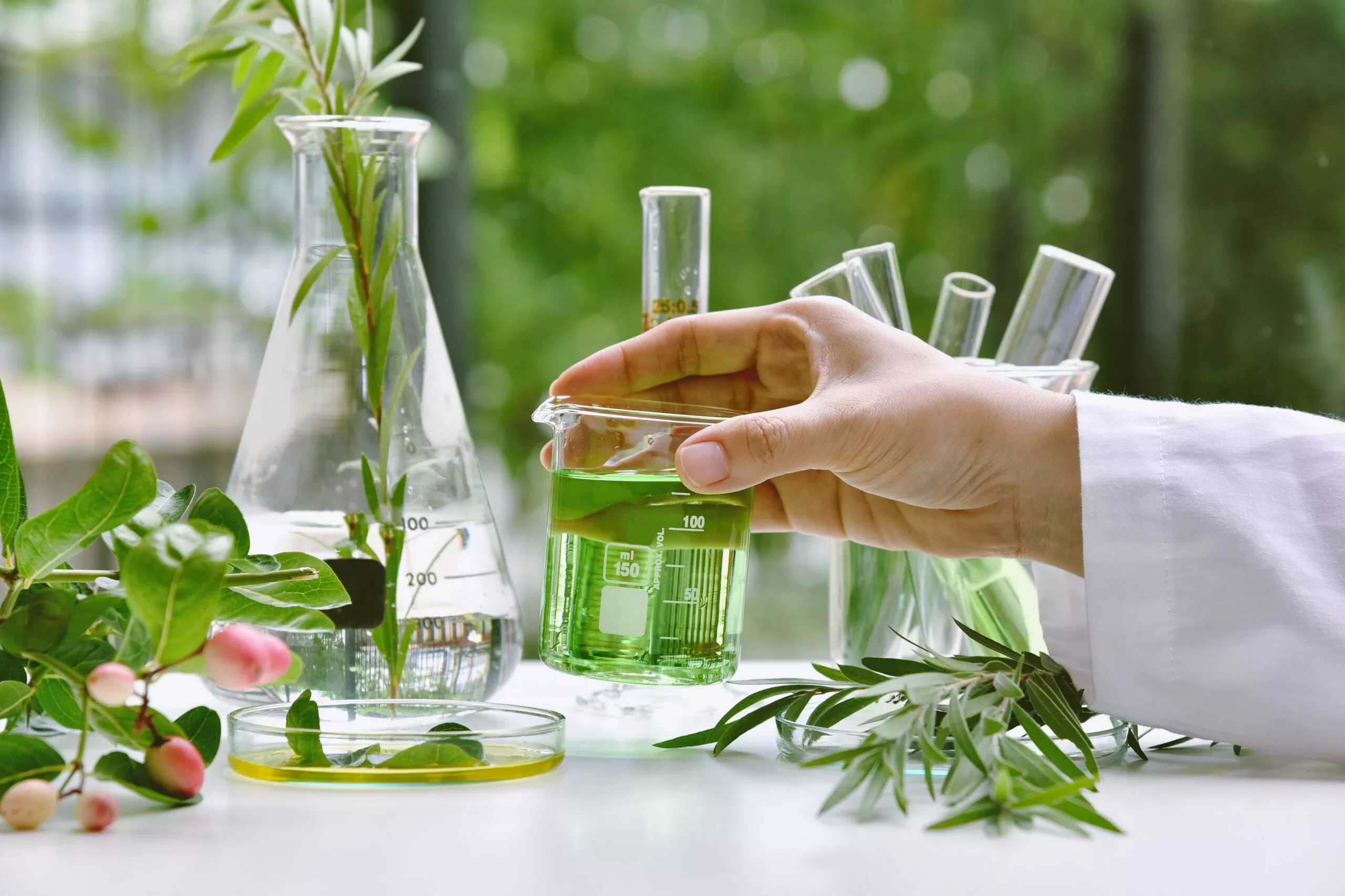- 0086-571-85302990
- sales@greenskybio.com
Nature's Remedy: Unveiling the Mechanisms Behind Plant Extracts' Hepatoprotective Powers
2024-07-17
1. Introduction
The liver is one of the most important organs in the human body. It is involved in a wide range of physiological processes, including metabolism, detoxification, and synthesis of essential proteins. However, the liver is constantly exposed to various insults, such as toxins, drugs, and viral infections, which can lead to liver damage and diseases. In recent years, there has been a growing interest in plant - based remedies for liver protection. Plant extracts have been shown to possess hepatoprotective properties, and understanding the mechanisms behind these effects is crucial for the development of new therapies for liver diseases.
2. The Liver and Its Vulnerabilities
2.1 Liver Functions
The liver plays a central role in metabolism. It is responsible for the metabolism of carbohydrates, lipids, and proteins. For example, it stores glycogen and releases glucose into the bloodstream when needed. In terms of lipid metabolism, it synthesizes and transports lipids. Additionally, the liver is involved in the detoxification of xenobiotics. It metabolizes drugs and toxins through phase I and phase II reactions, converting them into more water - soluble compounds that can be excreted from the body.2.2 Factors Causing Liver Damage
There are several factors that can cause liver damage. Toxins such as alcohol, environmental pollutants, and certain chemicals can directly damage liver cells. Excessive alcohol consumption, for instance, can lead to alcoholic liver disease, which progresses from fatty liver to hepatitis and eventually cirrhosis. Drugs can also have hepatotoxic effects. Some medications, when used for a long time or at high doses, may cause liver injury. Viral infections, especially hepatitis viruses (such as hepatitis B and C), are major causes of liver diseases. These viruses infect liver cells and can lead to chronic inflammation, fibrosis, and cirrhosis.3. Plant Extracts and Their Hepatoprotective Mechanisms
3.1 Antioxidant Mechanisms
One of the important mechanisms by which plant extracts protect the liver is through their antioxidant properties. Reactive oxygen species (ROS) are constantly generated in the body during normal metabolism, but excessive ROS production can cause oxidative stress, which is harmful to cells, including liver cells. Plant extracts often contain phenolic compounds, flavonoids, and other antioxidants. These substances can scavenge ROS, preventing them from causing damage to cellular components such as lipids, proteins, and DNA. For example, Green Tea Extract is rich in catechins, which are powerful antioxidants. They can neutralize free radicals and protect liver cells from oxidative damage.3.2 Anti - Inflammatory Mechanisms
Inflammation is a common response to liver injury. Chronic inflammation can lead to further liver damage and the development of liver diseases. Many plant extracts have anti - inflammatory effects. They can inhibit the activation of inflammatory cells, such as macrophages and neutrophils, and reduce the production of inflammatory mediators, such as cytokines (e.g., TNF - α, IL - 6) and chemokines. For instance, Curcumin, the active ingredient in turmeric, has been shown to have potent anti - inflammatory properties. It can down - regulate the expression of genes involved in inflammation and suppress the activation of NF - κB, a key transcription factor in the inflammatory response.3.3 Anti - Fibrotic Mechanisms
Liver fibrosis is a pathological process characterized by the excessive deposition of extracellular matrix (ECM) proteins in the liver. If left untreated, fibrosis can progress to cirrhosis and liver failure. Some plant extracts can inhibit the activation of hepatic stellate cells (HSCs), which are the main cells responsible for ECM production in the liver. For example, silymarin, an extract from milk thistle, can prevent the activation of HSCs and reduce the synthesis of collagen, a major ECM component. Additionally, plant extracts may also promote the degradation of ECM proteins, thereby reversing the fibrotic process.4. Specific Plant Extracts and Their Hepatoprotective Effects
4.1 Milk Thistle (Silybum marianum) Extract
Milk thistle extract, specifically silymarin, has been widely studied for its hepatoprotective effects. It contains a mixture of flavonolignans, including silybin, silydianin, and silychristin. Silymarin has antioxidant, anti - inflammatory, and anti - fibrotic properties. It can protect liver cells from damage caused by toxins such as alcohol and drugs. In clinical trials, silymarin has been shown to improve liver function in patients with liver diseases, such as alcoholic liver disease and hepatitis.4.2 Green Tea (Camellia sinensis) Extract
Green Tea Extract is rich in catechins, especially epigallocatechin - 3 - gallate (EGCG). EGCG has strong antioxidant activity. It can scavenge free radicals and protect liver cells from oxidative stress. Moreover, Green Tea Extract has been shown to have anti - inflammatory effects. It can inhibit the production of inflammatory cytokines in the liver. Some studies also suggest that green tea extract may have anti - fibrotic potential, although more research is needed in this area.4.3 Turmeric (Curcuma longa) Extract
Turmeric extract contains Curcumin, which is a well - known antioxidant and anti - inflammatory compound. Curcumin can protect the liver from damage caused by toxins, drugs, and viral infections. It can also inhibit the progression of liver fibrosis by suppressing the activation of HSCs and reducing the production of ECM proteins. In addition, curcumin has been shown to enhance the antioxidant defense system in the liver.5. Implications for Health - Conscious Individuals
For health - conscious individuals, understanding the hepatoprotective effects of plant extracts can be beneficial in maintaining liver health. Incorporating foods or supplements containing these plant extracts into their diet may help prevent liver damage. For example, drinking green tea regularly or taking milk thistle supplements may provide antioxidant and anti - inflammatory protection to the liver. However, it is important to note that while plant extracts show promise, they should not be considered as a substitute for medical treatment in cases of existing liver diseases. It is always advisable to consult a healthcare professional before starting any new supplement regimen.
6. Implications for the Medical Field
The study of plant extracts' hepatoprotective mechanisms has important implications for the medical field. These plant - based remedies may serve as a source of new drugs for liver diseases. Pharmaceutical companies can further investigate and develop these plant extracts into more effective medications. Moreover, understanding the mechanisms can help in the development of combination therapies. For example, combining plant extracts with existing drugs may enhance the efficacy of liver disease treatment. Additionally, research on plant extracts can provide insights into the pathophysiology of liver diseases, leading to a better understanding of the underlying mechanisms and the development of more targeted therapies.
7. Conclusion
In conclusion, plant extracts have shown great potential in liver protection through their antioxidant, anti - inflammatory, and anti - fibrotic mechanisms. Specific plant extracts such as those from milk thistle, green tea, and turmeric have been demonstrated to possess hepatoprotective effects. For health - conscious individuals, these plant extracts can be a part of a healthy lifestyle for maintaining liver health. In the medical field, they offer opportunities for the development of new drugs and therapies for liver diseases. However, more research is still needed to fully understand the mechanisms and to optimize the use of plant extracts in liver protection.
FAQ:
What are the main plant extracts known for hepatoprotective effects?
Some of the main plant extracts known for hepatoprotective effects include silymarin from milk thistle, curcumin from turmeric, and green tea extract. Silymarin has antioxidant and anti - inflammatory properties that can protect liver cells. Curcumin is a powerful antioxidant and anti - inflammatory agent that can also modulate various liver - related pathways. Green tea extract contains catechins which have been shown to have hepatoprotective effects, likely through antioxidant and anti - fibrotic mechanisms.
How do plant extracts exert antioxidant effects for liver protection?
Plant extracts exert antioxidant effects for liver protection in several ways. They contain compounds such as polyphenols, flavonoids, and phenolic acids. These compounds can scavenge free radicals, which are highly reactive molecules that can damage liver cells. By neutralizing free radicals, plant extracts prevent oxidative stress in the liver. For example, silymarin can donate electrons to free radicals, thus stabilizing them and preventing them from causing cellular damage. Curcumin can upregulate antioxidant enzymes in the liver, which also helps in reducing oxidative stress.
Can plant extracts really reduce liver inflammation?
Yes, plant extracts can reduce liver inflammation. They contain anti - inflammatory compounds that can inhibit the production of inflammatory cytokines and mediators. For instance, curcumin can suppress the activation of nuclear factor - kappa B (NF - κB), a key regulator of inflammation. This results in decreased production of pro - inflammatory cytokines like interleukin - 1β (IL - 1β) and tumor necrosis factor - α (TNF - α). Similarly, silymarin can modulate the inflammatory response in the liver by affecting various signaling pathways involved in inflammation.
What are the anti - fibrotic mechanisms of plant extracts in the liver?
Plant extracts may exert anti - fibrotic mechanisms in the liver by inhibiting the activation of hepatic stellate cells (HSCs). HSCs are responsible for the production of extracellular matrix proteins during liver fibrosis. Some plant extracts can block the signaling pathways that lead to HSC activation. For example, green tea extract has been shown to inhibit the TGF - β/Smad signaling pathway, which is crucial for HSC activation. Additionally, certain plant extracts can promote the apoptosis of activated HSCs, thereby reducing the fibrotic process in the liver.
Are plant - based remedies for liver protection safe?
In general, many plant - based remedies for liver protection are considered safe when used appropriately. However, it is important to note that some plant extracts may interact with medications or have potential side effects in certain individuals. For example, high doses of some herbal supplements may cause liver toxicity in rare cases. Also, people with pre - existing liver conditions or those taking medications should consult a healthcare provider before starting any plant - based liver remedies to ensure safety and avoid potential interactions.
Related literature
- Hepatoprotective Effects of Plant Extracts: A Review of Mechanisms and Clinical Applications"
- "The Role of Natural Plant Compounds in Liver Health: Insights into Their Hepatoprotective Mechanisms"
- "Antioxidant and Hepatoprotective Properties of Selected Plant Extracts: Current Understanding and Future Perspectives"
- ▶ Hesperidin
- ▶ citrus bioflavonoids
- ▶ plant extract
- ▶ lycopene
- ▶ Diosmin
- ▶ Grape seed extract
- ▶ Sea buckthorn Juice Powder
- ▶ Beetroot powder
- ▶ Hops Extract
- ▶ Artichoke Extract
- ▶ Reishi mushroom extract
- ▶ Astaxanthin
- ▶ Green Tea Extract
- ▶ Curcumin Extract
- ▶ Horse Chestnut Extract
- ▶ Other Problems
- ▶ Boswellia Serrata Extract
- ▶ Resveratrol Extract
- ▶ Marigold Extract
- ▶ Grape Leaf Extract
- ▶ blog3
- ▶ blog4
- ▶ blog5
-
What are extracts made of?
2024-07-17
-
Extract Usage: A Comprehensive Guide
2024-07-17
-
Are plant extracts good for you?
2024-07-17
-
What are plant-based extracts?
2024-07-17
-
What Is a Plant Extract? A Deep Dive
2024-07-17
-
Cassia Seed Extract
2024-07-17
-
Natural grape seed extract
2024-07-17
-
Lycopene
2024-07-17
-
White Willow Bark Extract
2024-07-17
-
Elderberry Extract
2024-07-17
-
Baicalin
2024-07-17
-
Tamarind extract powder
2024-07-17
-
Mulberry leaf Extract
2024-07-17
-
Polygonum Cuspidatum Extract
2024-07-17
-
Sophora Japonica Flower Extract
2024-07-17











